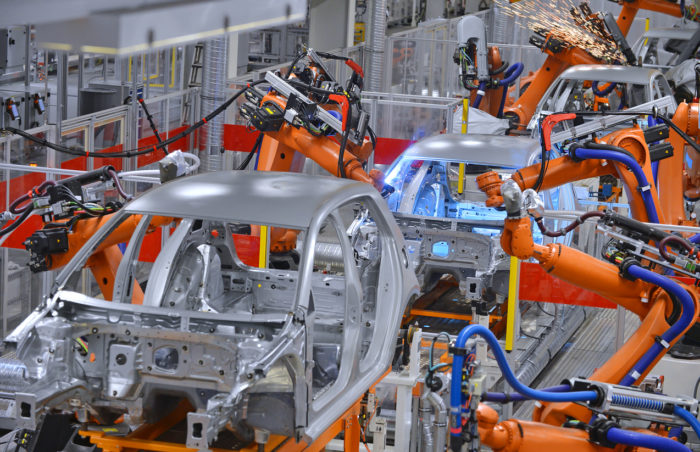Ripple Effect of Poor Auto Manufacturing Threatens Consumer Safety
Porsche rolled out its line of Cayenne sport-utility vehicles with carefree cruising in mind. Volkswagen did the same thing with its Touareg models. Now, about 125,000 of the upscale SUVs have been recalled because of fuel leaks and fire dangers. Porsche’s share of the recalled SUVs amounts to 50,000. Volkwsagen’s is higher at 75,000.
The problem originates with the pump’s filter flange, which can develop cracks. The flange is mounted inside the fuel tank, and its purpose is to close an opening used for vapor management.
“External aging exposure and oxidization reduces the component strength over an extended vehicle life,” reads Porsche’s Part 573 Safety Recall Report. “Additionally, fuel components intrude into the fuel filter flange material under pressure from the inside and cause tension within the component. Porsche believes that the combination of both such factors may, over time, eventually lead to the formation of small cracks, allowing fuel to seep from the fuel filter flange.”
Consumers complained about the smell of gas in their SUVs as early as February of 2017. The National Highway Traffic Safety Administration reported those complaints to Porsche, prompting a 90-day investigation by the automaker. In September, it was determined there was, in fact, a defect. Owners can have the flanges switched out with new ones wrapped in a protective film that prevents the formation of cracks. The recall affects 2003 through 2006 Cayennes.
“All Porsche Cayenne vehicles of model years 2003 through 2006 are potentially affected, inasmuch as there was no correction within the production process for these vehicles,” according to the report. “With the start of the production of the newer Cayenne (E1 II generation) in MY 2008, a different filter flange was introduced in production, and such vehicles are not affected (please note – there were no MY 2007 Cayenne variants offered in the U.S. or Canada).
The facts surrounding the Volkswagen recall are similar. In both cases, gas odors and leaks are on the record but occurrences of fires are not, fortunately. Consumers can visit the NHTSA Web site to find out whether their particular SUV has been recalled.
The 125,000 SUVs recalled in 2017 has reminded the industry about the 143,000 Audi SUVs recalled in 2016 for the same reason. Its 2009 through 2012 Q5s and 2007 through 2012 Q7s have the flawed flange. So does an earlier batch of Porsche SUV – the Macan – bringing the total of German products affected to nearly half a million. That number still could rise, as Continental Automotive Systems, the maker of the part, sold it to seven other manufacturers and a handful of suppliers.
That means a recall could affect millions more vehicles, but it also “could be zero” beyond the already-recalled crossovers,” Continental Automotive Systems’ Mary Arraf told Car and Driver’s David Muller in an article titled “Nearly Half a Million Fuel-Tank Flanges Recalled Due to Leaks – Potentially Many More to Come.”
The list includes automakers Fiat Chrysler, Ford, General Motors, Jaguar Land Rover, Lamborghini, McLaren Automotive and Mercedes-Benz and suppliers Kautex Textron, Magna International, Plastic Omnium, TI Automotive and Yapp USA Automotive Systems.
“Continental suspects the problem could stem from material degradation of the outer wall of the fuel-tank flange when it’s exposed to environmental factors such as acids from cleaning solutions,” Muller writes. “The fuel-tank flange was made with a widely used, industry-standard material called polyoxymethylene copolymer (POM).”
Arraf said the difficulty lies not only in the fact that the flanges have different parts numbers, but also in the fact that each automaker installs the part differently, causing flanges to be less-exposed to environmental factors than others.
The risk of fire dangers is real, and with the defective device potentially installed in millions of vehicles nationwide, should be taken seriously. So far, the NHTSA has. It is anticipated each automaker will follow suit. Many are investigating.
“It’s unclear at this point whether Ford vehicles are affected,” Ford spokeswoman Elizabeth Weigandt told Muller. “We are reviewing the matter and will cooperate with NHTSA, as we always do.”
Industry analyst Dave Sullivan said the flange in questions exemplifies how one part made by one company and sold to automakers and suppliers around the world can create a ripple effect.
“That’s kind of what the story of the whole auto industry is,” Sullivan told Bloomberg Technology’s Ryan Beene in an article titled “Porsche and Audi SUV Recall May Spread to More Car Manufacturers.” “Consolidation has happened and there’s a race for cheaper parts that are shared across more vehicles.”
Share This



